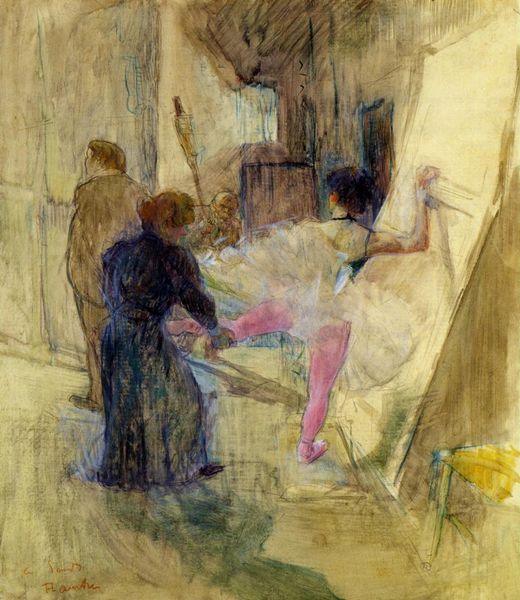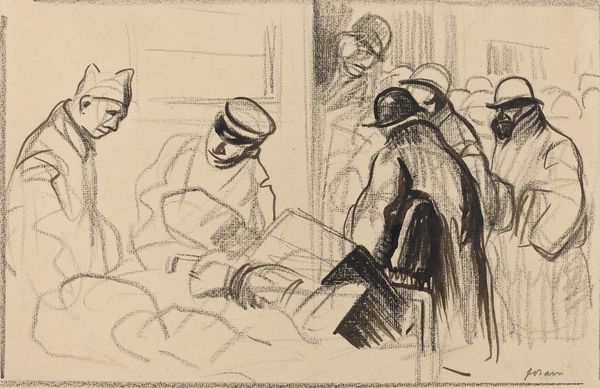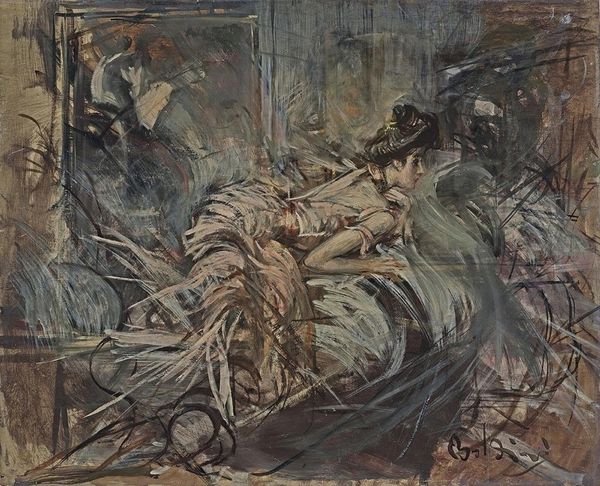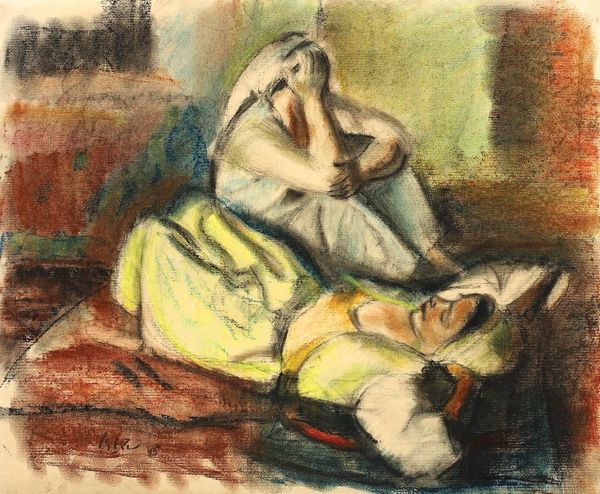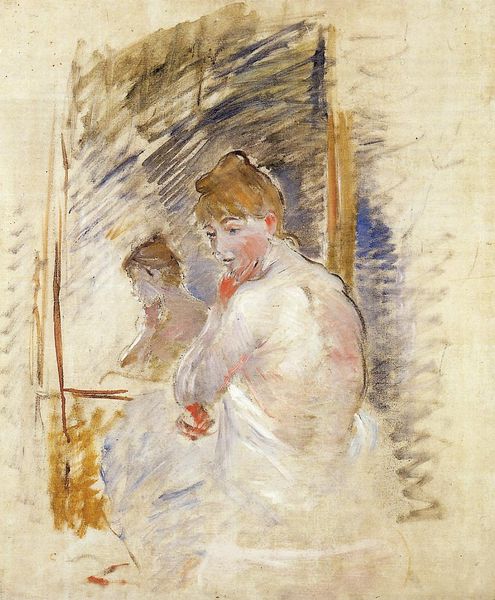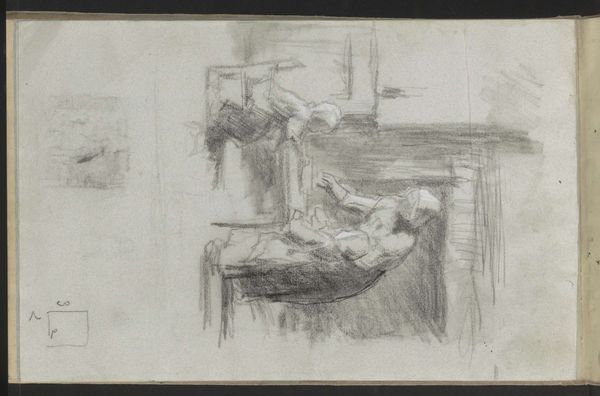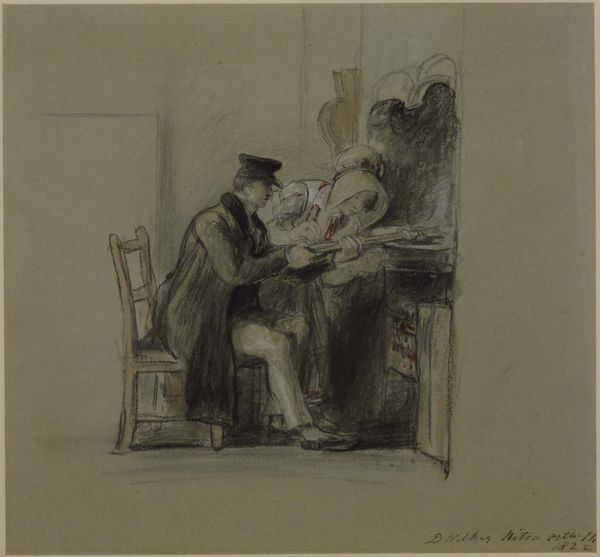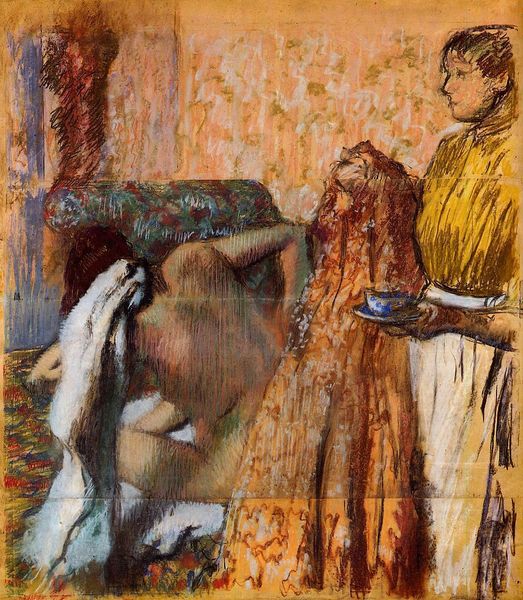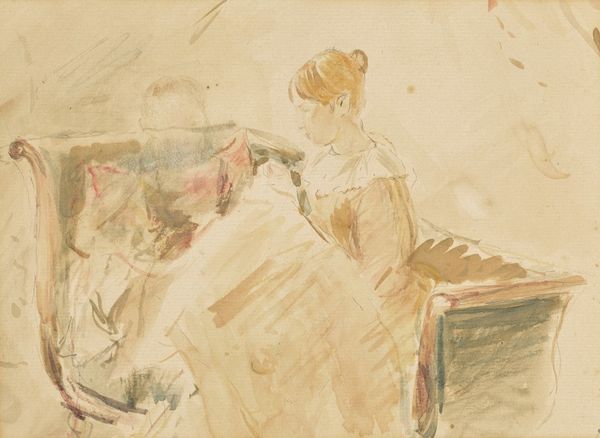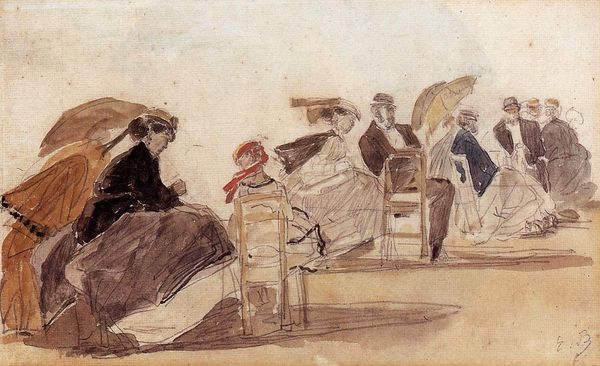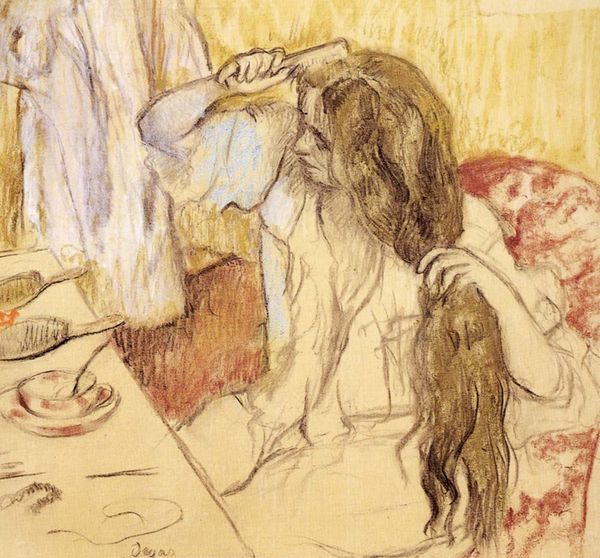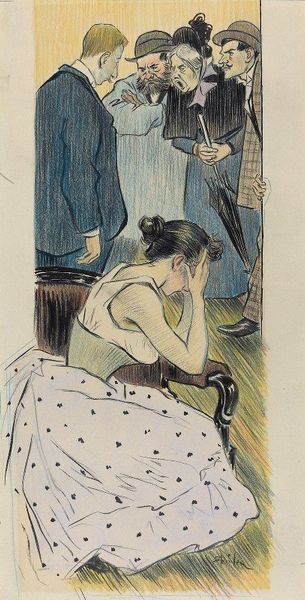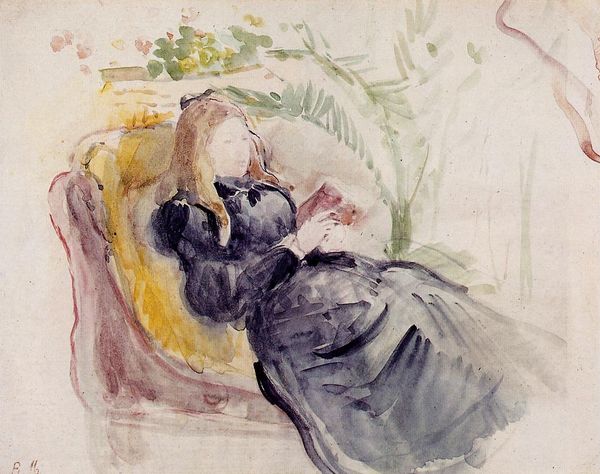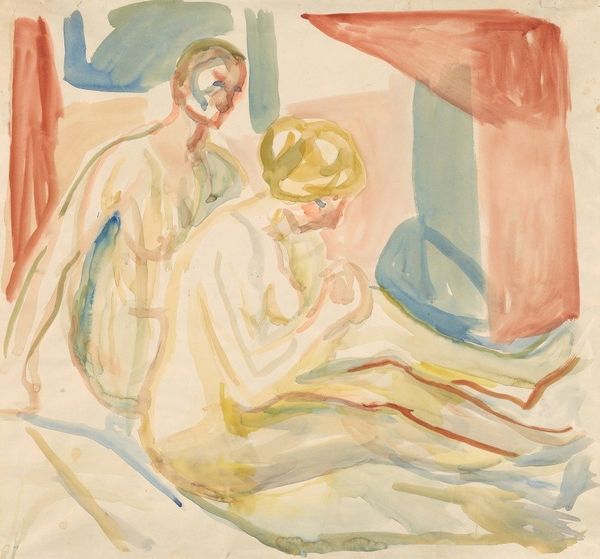
Copyright: Public domain
Paul Cézanne painted this watercolor, ‘Olympia,’ which now resides in Philadelphia, portraying a scene laden with historical and artistic echoes. The reclining nude, a classic motif of Western art, immediately recalls Venus, a symbol of love and beauty from antiquity. This composition echoes back to Titian’s ‘Venus of Urbino’ where the goddess reclines in domestic comfort. However, Cézanne's Olympia is not a goddess but rather a modern woman, placed within the complex social context of 19th-century Paris. Consider the recurring theme of the reclining female nude throughout art history and how the depiction of Venus has been transformed. The figure of Venus embodies the power and beauty of the female form, its significance shifts, mirroring evolving attitudes toward women and desire. This image has been adapted to reflect the changing cultural values and artistic expressions of different eras. Cézanne’s reinterpretation invites us to reflect on the enduring power of symbols and the way they are continuously reshaped by culture and time.
Comments
No comments
Be the first to comment and join the conversation on the ultimate creative platform.
